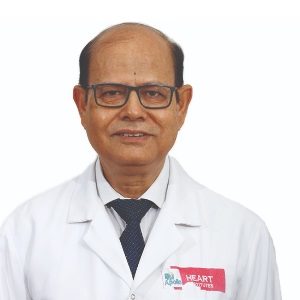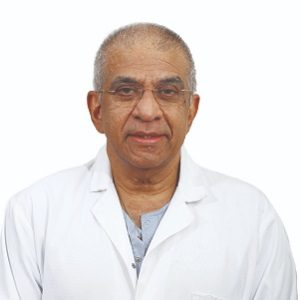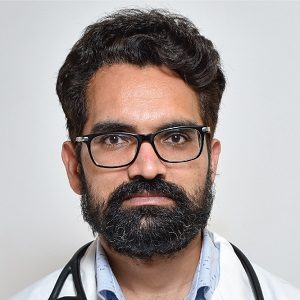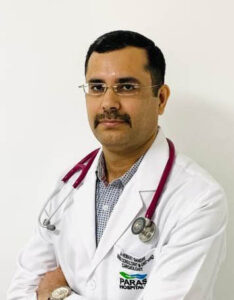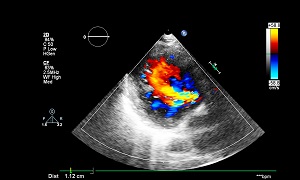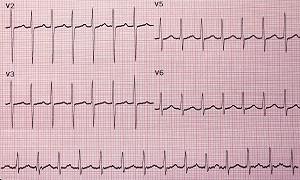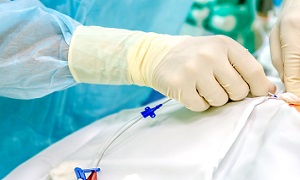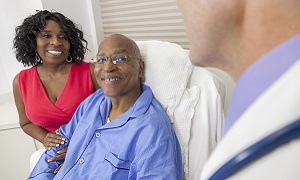Best Mitral Valve Replacement Doctors in India
Here is a list of the most reputed Cardiac Surgeons in India for Mitral Valve Replacement or repair.
- Cardiac Surgeon, Gurugram, India
- Over 15 years’ experience
Profile Highlights:
- Dr. Rachit Saxena is an experienced cardiac surgeon, who is known for his extreme dedication to his profession, and for providing absolute patient satisfaction.
- Supported by an efficient cardiac surgical team, Dr. Saxena is known for successfully managing the most complex of cardiac surgical problems.
- Dr. Rachit Saxena is known especially known for the capability to perform cardiac surgery with minimal blood requirement and ensure early mobilization and return to work.
- Cardiothoracic and Vascular Surgeon, New Delhi, India
- Over 36 years’ experience
Profile Highlights:
- Dr. N Sastri is a renowned cardiothoracic surgeon in India with extensive experience in critical heart surgeries.
- He has nearly 36 years of experience and is a senior consultant- Cardiothoracic & Vascular Surgery with Indraprastha Apollo Hospitals, New Delhi.
- Dr. Sastri specializes in the diagnosis and treatment of vascular disorders using advanced techniques. He has expertise in Total Anomalous Pulmonary Venous Connection Repair, Arterial and Ventricle Defects Surgery, Cardiac Resynchronization Therapy, Balloon Valvuloplasty, CABG LV restoration, PDA Device Closure, PPI, Valve Replacement, and Atrial Fibrillation Surgery.
- Over the years’ Dr. Sastri had treated patients across various countries. In addition to the adult and neonatal cardiac surgeries, he is involved in research and put out many research papers in different medical journals.
- Cardiac Surgeon, Cardiothoracic Surgeon, Vascular Surgeon, Chennai, India
- Over 35 years’ experience
Profile Highlights:
- Dr. Dillip Kumar Mishra is a well-known and experienced Cardiothoracic Surgeon in Chennai who has completed 35 years of specialized experience.
- The doctor gained experience working overseas in countries like Italy, Saudi Arabia, Bangladesh-Dhaka, and India.
- The doctor offers the best services to the patients, some of the prominent services include Intra – Arterial Thrombolysis, Mitral/Heart Valve Replacement, Cardio-Thoracic Surgery, bypass surgery, Radial Approach Angiography Balloon Mitral Valvuloplasty, etc.
- Cardiac Surgeon, Cardiothoracic Surgeon, Vascular Surgeon, Chennai, India
- Over 31 years’ experience
Profile Highlights:
- Dr. Vijay Shankar S is a senior cardio-thoracic Surgeon in Chennai having experience of more than 30 years in Cardiac Surgery.
- Dr. Vijay Shankar was a fellow Coronary Artery Surgery and Congenital Heart Surgery at the University of Wisconsin, USA.
- He provides consultation and diagnostic services for Mitral/Heart Valve Replacement, Cardiac Pacing, Invasive Cardiology, ABPM, Balloon Mitral Valvuloplasty, CT Angiography, etc.
- Interventional Cardiologist, Gurugram, India
- Over 10 years’ experience
Profile Highlights:
- Dr. Jagdeep Yadav is one of the best cardiac surgeons in Gurugram. He is particularly interested in non-coronary therapies such as peripheral interventions and device closures.
- Dr. Jagdeep Yadav is skilled in using modern techniques in interventional cardiology and non-invasive cardiology procedures. He employs cutting-edge technologies such as IVUS, OCT, FFR, and IVL to make life better in complex cardiac therapies.
- Cardiovascular Surgeon, Cardiac Surgeon, Gurugram, India
- Over 32 years’ experience
Profile Highlights:
- Dr. Vijay Kohli is one of the best cardiac surgeons in India. He has brought an evolution in the spectra of Cardiac Surgery, wherein, he was the first leading surgeon to perform CABG on a beating heart in Kathmandu, Nepal.
- Vijay Kohli performed the first coronary artery bypass surgery in Jammu Medical College in 2001.
- Additional Director Cardiology
- 15 Years Experience
Profile Highlights:
Profile Snapshot of Dr. Hemant Gandhi
- Hemant Gandhi is a distinguished figure in the field of interventional cardiology with over 15+ years of extensive experience.
- He is recognized for his proficiency in handling cases involving congenital heart defects such as ASD and PDA, along with peripheral angiography, angioplasty, and balloon valvuloplasty.
- Gandhi holds the distinction of being the first D.M. (Cardiology) candidate to graduate from the prestigious PGIMER and Dr. RML Hospital, New Delhi.
- Beyond his clinical practice, he is actively engaged in the education and training of medical students in the specialized domain of Cardiology.
- His contributions to academia are further underscored by a significant number of publications that enrich the field with his insights and research findings.
Best Mitral Valve Replacement Hospitals in India
Lilavati Hospital & Research Centre, Mumbai
- City: Mumbai, India
Hospital Highlights:
- Lilavati Hospital & Research Centre is India’s premier multi-speciality tertiary care hospital and has been recognised as a global medical excellence centre.
- Lilavati Hospital & Research Centre has built an unrivalled level of trust with its patients over the years, thanks to a solid foundation that comprises cutting-edge facilities, the best medical competence, research, education, and charity endeavours.
- The hospital is quite proud of the fact that it now serves patients from all kinds of backgrounds, not just from the United States but from all around the world.
- The hospital has a total of 323 beds, one of the largest Intensive Care Units (ICUs), 12 Operation Theatres with modern amenities, over 300 consultants, and almost 1,800 personnel.
Venkateshwar Hospital, Dwarka, New Delhi
- City: New Delhi, India
Hospital Highlights:
- State-of-the-art technology and devoted healthcare professionals have been brought together under one roof at Venkateshwar Hospital to provide genuine medical care. The hospital’s professionals work together as a team to deliver the best possible treatment to their patients, using the most sophisticated equipment and information technology.
- Venkateshwar Hospital’s mission is to attain global excellence in healthcare by employing evidence-based, ethical clinical practices and cutting-edge technology by a team of highly skilled experts.
Marengo Asia Hospital, Faridabad
- City: Faridabad
Hospital Highlights:
In the sprawling city of Faridabad, where healthcare needs are diverse and ever-evolving, one institution has consistently stood out as a beacon of excellence in the field of medicine—Marengo Asia Hospital. Established with a vision to provide world-class healthcare services to the community it serves, Marengo Asia Hospital has emerged as a trusted name synonymous with quality, compassion, and innovation in healthcare.
MGM Healthcare, Chennai
- City: Chennai, India
Hospital Highlights:
- Located in Chennai, India, MGM Healthcare is a top multispecialty hospital that provides all medical services under one roof.
- Since its founding in 2019, MGM Healthcare has quickly become a leading national referral centre, creating several innovative flagship initiatives.
- MGM Healthcare combines next-generation medical and digital technologies to provide better patient results.
- With 12 centres of excellence, more than 400 inpatient beds, 100 intensive care unit beds, and 24/7 emergency care, MGM Healthcare leaves no chance in redefining the patient experience in Chennai.
- MGM Healthcare boasts 250+ expert doctors across 30+ departments, including Cardiology, Pulmonology, Neurology, Obstetrics & Gynaecology, and more.
- They house 12 specialized Centres of Excellence, including Neurosciences, Orthopaedics, and Multi-Organ Transplantation.
- Their team of doctors, nurses, and paramedics works together to give every patient individualized treatment.
Mitral Valve Replacement
A mitral valve replacement is performed for replacing a poorly working mitral valve with an artificial one. The heart has four valves, and the mitral valve is one of them. This organ, which lies between the left atrium and left ventricle, helps the blood to flow, through the heart and out to the body.
Indications of Mitral valve replacement
Several types of mitral valve diseases exist. In mitral valve regurgitation, the flaps of the mitral valve don’t close properly, which can cause blood to leak backward into the left atrium. This commonly occurs due to valve leaflets bulging back, a condition which is known as mitral valve prolapse.
Another condition exists, which is known as mitral valve stenosis, where the leaflets become thick or stiff, which can make them fuse together. This can result in the valve opening getting narrowed, which causes a reduction in the blood flow through the valve.
The doctor will generally try to repair your mitral valve, but when a repair is no longer possible then mitral valve replacement is considered.
Purpose
This procedure is required if your heart’s mitral valve is not working properly. Surgical repair is possible, though sometimes the valve needs a replacement.
First, your doctors will need to check how serious your condition is and if you are experiencing any symptoms. If your condition is too serious, your doctor might be recommending mitral valve repair or replacement. However, if your condition is mild you might not need any surgery.
Your doctor will next need to discuss with you whether mitral valve repair or mitral valve replacement is the most appropriate for you. Doctors generally recommend mitral valve repair but if they see that it is no longer possible, they will need to perform mitral valve replacement. Doctors might next evaluate which method is best for you: Minimally invasive heart surgery or open-heart surgery.
Preparation
Before the surgery for having your mitral valve repaired or replaced, your doctor and treatment team will need to explain to you, what exactly you can expect before and after the treatment. He/she will also discuss any potential risks. If you have any questions, it is important to discuss them with the doctor and the treatment team. You will also receive instructions that you will need to follow during your recovery time.
You might need a few tests as recommended by your doctor. This can include Chest X-ray, electrocardiogram, echocardiogram, blood tests, coronary angiogram.
Talk to your doctor regarding when you should take your regular medications, and whether you should take them before the surgery. You might also need to stop eating or drinking the night before the surgery.
You will also need to bring clothing and any personal items such as eyeglasses, hearing aids, toothbrush, comb, etc.
Test done before Mitral Valve Replacement
Electrocardiogram
Stress test
Echocardiogram
Chest X-Ray
Cardiac catheterization
Cardiac catheterization involves the insertion of a thin, flexible tube (catheter) into a blood vessel through groin and is pushed forward to the heart. With the help of this test the doctors can diagnose congenital heart defects, check pumping of heart and function of the heart valves
Procedure
First, you will be sedated before the surgery, with general anesthesia. Therefore, you will be in deep sleep during the procedure and won’t feel any pain.
The operation generally takes several hours. During the procedure, you will be connected to a heart-lung bypass machine, which will keep your blood moving through your body.
First, an incision is made, down the middle of your chest. The doctor will need to separate your heart, to access your breastbone.
Then the surgeon will remove the current mitral heart valve, after which he/she will replace it with a new one. After this is done successfully, the heart-lung machine will be removed, and your breastbone will be wired back together. Then your team will sew or staple the incision in your skin back together again.
If you receive a mechanical valve, you will require blood-thinning medications for the rest of your life for preventing any blood clots. Doctors will be discussing with you all the risks and benefits of each type of valve. He/she will also be discussing which valve is most appropriate for you, before your procedure.
Aftercare
You will be spending a day or more in the ICU. During this time, you will receive fluids, nutrition and medications through intravenous (IV) lines. Other tubes will be draining your urine from the bladder as well as fluid and blood from your heart and chest. You might also be given oxygen.
Next, you will be moved to a regular hospital room for some days. Depending on your condition and the type of surgery you went through, the time you spend in the ICU and hospital will vary.
Your condition will be monitored by your treatment team. They will watch for any signs of infection in your incision sites. Your team might also need to check your blood pressure, heart rate and breathing. Your treatment team will be working with you to manage any pain that you might experience after the surgery.
Your treatment team might instruct you to walk regularly and increase your activity gradually. They might also recommend breathing exercises as you recover.
Your doctor will also be giving you instructions that you will need to follow during your recovery. You will need to be watching for any sign of infection in your incisions, properly caring for the incisions, taking the required medications and managing pain and any side effects after the surgery.
Results
After mitral valve replacement surgery, within a few days you should be able to return to your daily routines, such as work, exercise or driving. Your doctor will be discussing with you when it is okay for you to resume your activities.
You will need to regularly attend follow-up appointments with your doctor. Several tests might be required to evaluate as well as monitor your condition.
Your doctor will likely recommend you to incorporate healthy lifestyle changes. This can include a healthy balanced diet, physical activity, stress management, and avoiding the use of tobacco.
Recovery & risks
The majority of the people who have an open mitral valve replacement usually end up with a successful outcome. However, there are a few risks. Based on your overall health, your particular risks will vary. Make sure that you talk with your doctor if you have any concerns.
Some of the risks include:
- Infection
- Blood clots leading to a heart or a stroke
- Bleeding
- Heart rhythms getting irregular
- Complications from anesthesia
- Memory loss or problems with concentration
- Continued leaking of the valve
- Damage to your nearby organs
There are a few factors which increase the risk of complications:
- Chronic illness
- Heart conditions
- Lung problems
- Infections
- Increased age
- Being obese
- Smoking
FAQs
What is the recovery time for a mitral valve replacement?
It takes 4-8 weeks to recover fully from mitral valve replacement surgery.
What is the survival rate for mitral valve replacement surgery?
The survival rate for mitral valve replacement surgery is about 94% with good surgeons.
How many years does a mitral valve repair last?
The patients are free of operation for at least 10 years after mitral valve replacement surgery.



